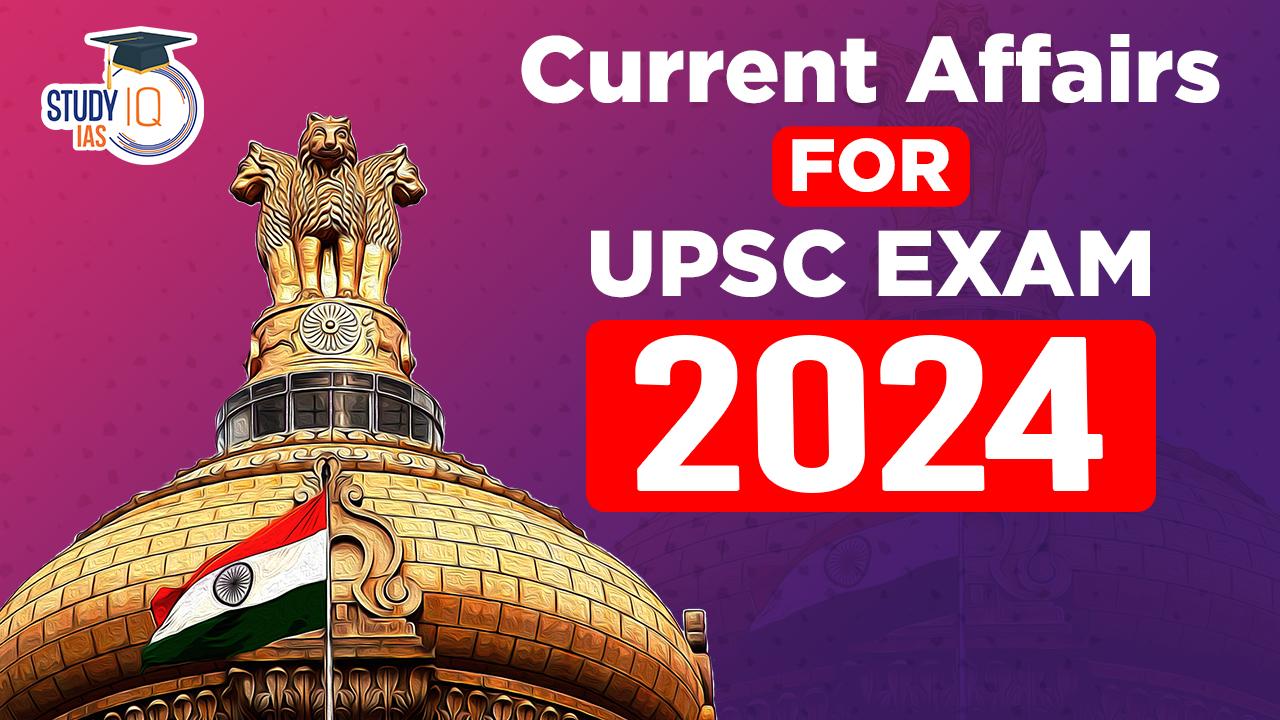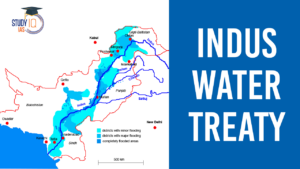Table of Contents
Committee to Frame Rules on Oath Taking
Context
The Speaker of Lok Sabha has constituted a committee to frame rules for “oath-taking and affirmation” of MPs.
More in News
- There were several instances of members raising slogans while taking oath as MPs such as a slogan hailing Palestine, and “Jai Hindu Rashtra”.
Parliamentary Oath-Taking Process for Indian MPs
Term of an MP
- Start of Term: The five-year term begins when the Election Commission of India (ECI) declares the results, according to Section 73 of the Representation of the People Act, 1951. For the 2024 general elections, results were declared on June 6.
- Rights and Responsibilities: MPs start receiving salary and allowances from the date of ECI notification. The start of their term also activates anti-defection laws.
Significance of the Parliamentary Oath
- Participation in Proceedings: MPs must take the parliamentary oath to participate in debates and vote in the Lok Sabha.
- Constitutional Requirements: The oath or affirmation is prescribed in the Constitution (Article 99), with a financial penalty of Rs 500 for participating in proceedings without taking the oath (Article 104).
- Ministerial Exception: An individual can become a minister without being elected to Parliament and has six months to secure a seat in either Lok Sabha or Rajya Sabha. During this period, they can participate but not vote in House proceedings.
Parliamentary Oath Text:
- Prescribed in Constitution’s Third Schedule
- Includes allegiance to Constitution, upholding India’s sovereignty and integrity
Evolution of the Oath:
- Initially did not invoke God
- Amendments during Constituent Assembly debates added reference to God
- Constitution (Sixteenth Amendment) Act, 1963 added upholding India’s sovereignty and integrity
Oath-Taking Process:
- MPs must submit election certificate to Lok Sabha staff
- Can take oath in English or any of 22 specified languages
- About half take oath in Hindi or English
- Sanskrit popular: 44 MPs in 2019, 39 in 2014
- Must use name on election certificate
- Personal choice between oath (in God’s name) and affirmation
- In 2019 Lok Sabha, 87% swore in God’s name, 13% affirmed
Notable Incidents:
- 1957: Mentally unsound individual posed as MP and took oath
- 2019: Sadhvi Pragya Singh Thakur added suffix to name (ruled out)
- 2024: Swati Maliwal added “Inquilab Zindabad” (asked to retake oath)
MPs in Jail:
- Can take oath to avoid seat being declared vacant after 60 days
- Example: Atul Kumar Singh (Ghosi MP) took oath in January 2020 while in jail
Zika Virus
Context
Recently, Pune in Maharashtra has experienced a significant rise of zika virus disease cases.
About Zika Virus Disease
- Zika virus disease is caused by the Zika virus, belonging to the flavivirus genus.
- Zika virus (ZIKV) is an arthropod-borne flavivirus (single-stranded RNA virus).
- It is a non-fatal disease.
- Transmission:
- Primarily through bites from infected Aedes mosquitoes (the same mosquitoes that transmit dengue and chikungunya).
- Through sexual contact, even without symptoms, and can cause birth defects.
- From pregnant women to their foetus during pregnancy or around birth.
- Potentially through breastfeeding, though risk is not confirmed.
- Rarely through laboratory exposure or blood transfusions (reported in Brazil).
- Symptoms:
- Zika symptoms are similar to other mosquito-borne viral infections like dengue and chikungunya.
- Most infected individuals have no symptoms or mild ones.
- Common symptoms include fever, rash, headache, joint pain, red eyes, and muscle pain.
- Symptoms often last several days to a week.
- Treatment:
- Currently, there is no dedicated vaccine or specific treatment for Zika virus.
- Supportive care focuses on managing symptoms:
- Rest
- Hydration
- Over-the-counter pain relievers and fever reducers (avoid NSAIDs until dengue is ruled out)
- Pregnant women with Zika should seek immediate medical attention.
Concerns
- Pregnant Woman Complications:
- Pregnant women infected with the Zika virus may give birth to babies with microcephaly and other birth defects.
- There’s an increased risk of early labour and miscarriage.
- The World Health Organization (WHO) once classified Zika-induced microcephaly as a Public Health Emergency of International Concern (PHEIC) in 2016, a status that was lifted within the same year.
- Zika as an RNA Virus:
- RNA viruses like Zika are prone to high mutation rates.
- Some RNA viruses can embed their genetic material into the DNA of host cells, posing long-term health risks.
- Their adaptability can lead to widespread outbreaks and pandemics.
- There’s a risk of these viruses becoming resistant to antiviral medications.
- Enhances Mosquito-Borne Diseases:
- Zika virus can alter the skin’s microbial environment in primates, leading to an increase in acetophenones that draw mosquitoes, enhancing the spread of the virus.
- Such changes can also escalate the transmission risks for other diseases like severe dengue.
UNESCO’s World Heritage Committee
Context
For the 1st time India will host the UNESCO’s World Heritage Committee.
About the UNESCO’s World Heritage Committee
- Establishment: The World Heritage Committee was formed under the UNESCO World Heritage Convention during the 17th session of the General Conference on November 16, 1972.
- Membership:
- Comprising 21 States Parties to the convention, the members are elected by the General Assembly.
- Current members include: Argentina, Belgium, Bulgaria, Greece, India, Italy, Jamaica, Japan, Kazakhstan, Kenya, Lebanon, Mexico, Qatar, Republic of Korea, Rwanda, Saint Vincent and the Grenadines, Senegal, Türkiye, Ukraine, Viet Nam, and Zambia.
- The term of office for a Committee member lasts for six years.
- Responsibilities:
- Implementation: The Committee oversees the enforcement of the World Heritage Convention, manages the World Heritage Fund, and distributes financial aid.
- World Heritage Sites List: It holds the authority to determine whether a property should be added to the World Heritage List.
- Monitoring Conservation Efforts: The Committee reviews conservation reports of inscribed properties and requires States Parties to address any management deficiencies.
- World Heritage in Danger: It has the power to both inscribe and remove properties from the List of World Heritage in Danger.
Exercise Nomadic Elephant
Context
The 16th edition of the India-Mongolia Joint Military Exercise Nomadic Elephant began in Umroi, Meghalaya.
More in News
- It involves 45 Indian personnel from the Sikkim Scouts and other arms, and personnel from the 150 Quick Reaction Force Battalion of the Mongolian Army.
Defence Cooperation Between India and Mongolia
- India-Mongolia Joint Working Group for Defense Cooperation: The defence cooperation between India and Mongolia is facilitated through an annual meeting of the Joint Working Group.
- ‘Nomadic Elephant’ Joint Exercise: India and Mongolia conduct the ‘Nomadic Elephant’ military exercise on an annual basis to enhance bilateral defence relations.
- Participation in ‘Khan Quest’: Observers from the Indian Armed Forces participate each year in the ‘Khan Quest,’ a multilateral peacekeeping exercise hosted by Mongolia.
- Emergency Management Collaboration: Recent years have seen accelerated cooperation between Mongolia’s National Emergency Management Agency (NEMA) and India’s National Disaster Management Agency (NDMA) in disaster management initiatives.
National Security Council
Context
- Deputy National Security Adviser Rajinder Khanna has been appointed as the 1st Additional National Security Adviser (NSA).
- Additionally, Intelligence Bureau special director T.V. Ravichandran has been appointed as deputy NSA.
About National Security Council
- Establishment: The NSC was founded in 1998 by the government under Prime Minister Atal Bihari Vajpayee after nuclear tests were conducted by India and Pakistan. It serves as India’s highest authority for national security management.
- Before NSC Formation: Before the NSC was established, national security functions were managed by the Principal Secretary to the Prime Minister.
- Operational Structure: The NSC operates through a three-tier structure comprising the Strategic Policy Group (SPG), the National Security Advisory Board (NSAB), and the National Security Council Secretariat (NSCS).
- Strategic Policy Group (SPG): Chaired by the Cabinet Secretary, the SPG includes senior officials such as the Chiefs of the Armed Forces, the Intelligence Bureau, and the Research and Analysis Wing (R&AW). Its primary role is to formulate policy recommendations for the NSC.
- National Security Advisory Board (NSAB): The NSAB consists of senior retired officials, academics, and civil society experts, providing long-term analyses and policy advice on various national security aspects, including defence, foreign affairs, and economic policies.
- National Security Council Secretariat (NSCS): Positioned under the Prime Minister’s oversight, with the National Security Advisor (NSA) serving as its secretary, the NSCS coordinates all national security-related activities.
- Headed By: The NSC is led by the Prime Minister, with the NSA as the primary advisor and secretary to the council.
- Headquarter: New Delhi.
- Current NSA: Ajit Doval is the current NSA, notable for being the longest-serving in this role with a tenure surpassing ten years.
- Appointments Committee of the Cabinet (ACC): The ACC, chaired by the Prime Minister and including the Minister of Home Affairs, is responsible for the appointment of top government positions, including the NSA.
- NSC Members: The NSC’s membership extends beyond the NSA to include the Deputy NSA, additional NSA, and key ministers like those of Defence, External Affairs, Home, and Finance, as well as the Vice Chairman of NITI Aayog. Additional officials may join monthly meetings as required.
Examples, Case Studies and Data
- Health Risks associated with Air Pollution (GS 3): The study published in Lancet Planet Health highlights the differential impacts of air pollution on mortality across ten Indian cities.
- Impact of Pollution in Cleaner Cities: The study found that cities with generally cleaner air experienced higher relative increases in death rates following spikes in air pollution compared to cities with higher baseline pollution levels.
- For instance, an increase in air pollution in Bengaluru led to a greater proportional rise in death rates than a similar increase in Delhi.
- Annual Deaths Attributable to Air Pollution: Despite Bengaluru’s lower pollution exposure, it still recorded a significant impact from air pollution, though less than Delhi:
- Delhi:5% of annual deaths were attributable to air pollution.
- Bengaluru:8% of annual deaths were due to air pollution.
- Interestingly, Bengaluru’s population is exposed to only 30% of the daily air pollution levels compared to Delhi.
- Mortality and PM 2.5 Levels: The research indicated that short-term exposure to PM 2.5 was responsible for 7.2% of the annual deaths across these cities, translating to nearly 30,000 deaths.
- Daily mortality rates increased by 1.42% for every 10 µg/m³ rise in PM 2.5 levels over a two-day period.
- City-Specific Mortality from Air Pollution (2008-2019):
- Delhi saw about 12,000 deaths annually attributed to air pollution.
- Shimla had the lowest number at 59 deaths annually due to air pollution, the lowest among the studied cities.
- Mortality Risk at Varying Levels of PM 2.5:
- The study highlighted that the risk of mortality increases rapidly at lower levels of PM 2.5 but tends to plateau as the levels get higher.
- A high mortality risk of 2.65% was observed even on days when PM 2.5 levels were below India’s national air quality standard of 60 µg/m³.
- Impact of Pollution in Cleaner Cities: The study found that cities with generally cleaner air experienced higher relative increases in death rates following spikes in air pollution compared to cities with higher baseline pollution levels.


 Phenome India Project: Mapping India's H...
Phenome India Project: Mapping India's H...
 UDAN Scheme, Objectives, Funding and Ach...
UDAN Scheme, Objectives, Funding and Ach...
 Indus Water Treaty 1960 Suspended by Ind...
Indus Water Treaty 1960 Suspended by Ind...





















